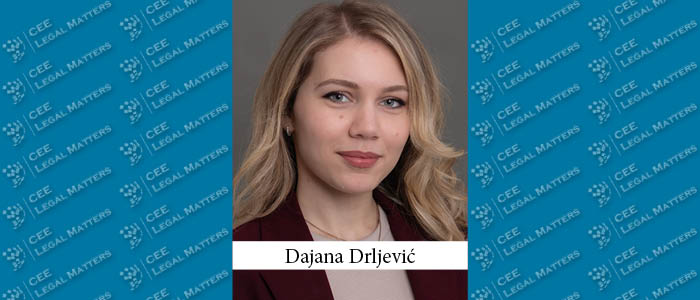As a result of major market changes, business entities more often suspend their operations and become insolvent, during which arises the question of the collectability of the claims of their creditors and associates, as well as persons who are in other relationships with such insolvent business entities.
The legislative framework governing bankruptcy provides partial answers. However, certain questions still remain unanswered in the shining shadow of legal gaps.
Certain rights of creditors are resolved not only through bankruptcy, but also through civil proceedings, and while civil proceedings usually arise before bankruptcy proceedings are opened, the question arises of the fate of civil proceedings when bankruptcy proceedings are opened against the plaintiff or the defendant.
The Law on Civil Procedure stipulates that civil proceedings are in moratorium when the legal consequences of opening bankruptcy proceedings occur.
The Bankruptcy Law clearly regulates the issue of when bankruptcy proceedings are opened against the plaintiff, regarding the continuation of civil proceedings. Article 91 of the stated law stipulates that the civil proceedings in which the bankruptcy debtor is the plaintiff shall continue when the bankruptcy administrator informs the court before which the proceedings are conducted that has taken over the same, at which time the bankruptcy proceedings shall continue.
If the bankruptcy administrator does not continue the proceedings, it can be considered that with such an action, the bankruptcy debtor as a plaintiff has given up, that is, waived right, considering that will not claim it further. Although this issue is not precisely regulated in terms of the legal fate of such procedure, given that it continues to exist as a proceeding in the moratorium, to a certain extent, the issue of the continuation of the procedure when the bankrupt debtor appears as the defendant and the issue of protecting the rights of the creditor as a plaintiff, i.e. other persons who wish to exercise and establish their rights through civil proceedings.
Article 92 of the Bankruptcy Law stipulates the conditions under which the civil proceedings, in which the bankrupt debtor is sued, continue, namely if: i) the plaintiff, as a bankrupt and separate creditor, submitted a timely and orderly report of claims; ii) at the examination hearing, the bankruptcy administrator contests the claims report; iii) the plaintiff, as a bankruptcy or separate creditor, is directed by the conclusion of the bankruptcy judge to continue the interrupted litigation in order to determine the merits of the claim; iv) the plaintiff, as a bankruptcy or separate creditor, proposes the continuation of the proceeding in moratorium within eight days from the date of receipt of the conclusion of the bankruptcy judge.
Consequently, the court will reject the proposal to continue the proceedings if the conditions from Article 92 of the Bankruptcy Law are not met.
Therefore, in the event that the creditor, that is, another person, does not submit a timely and orderly reported claim, will not have the right to continue the previously initiated civil proceeding which seeks the realization and determination of rights. In practice, the question of the fate of claims that are not eligible to be reported in bankruptcy proceedings arises. Such claims are non-monetary claims that do not have ownership or other right to the property of the bankrupt debtor.
The perceived legal gap must not be to the detriment of creditors of the bankrupt debtor, or other persons.
Namely, a proceeding that is not continued exists as a proceeding in the moratorium. Civil proceedings in moratorium are not completed civil proceedings, but proceedings that are "waiting" for their continuation and as such can be a hindrance to other proceedings.
On the other hand, it cannot be considered that the suspended procedure has really ended. In the end, the procedure in moratorium is suspended after the bankruptcy debtor ceases to exist as a legal entity, according to Article 216 paragraph 4 of the Law on Civil Procedure. It is also a fact that certain bankruptcy proceedings can last several years until the bankrupt debtor ceases to exist as a legal entity.
According to what has been stated, for the plaintiff, there is neither a moratorium nor an end to the civil proceedings, but the uncertainty of the fate of his right.
The courts have the possibility to continue the proceedings at the plaintiff's request against the other defendants, with the exception of the bankruptcy debtor. However, they mostly agree that it is a question of unique rivals, according to whom the dispute can only be resolved in an equal way for everyone, according to the law or the nature of the legal work, which is sometimes not a clear case.
As legal representatives of the person in the described situation, through procedurally permitted means, we referred the above-mentioned question to the competent courts for legal resolution and interpretation. It remains to be seen how judicial practice will resolve the dilemmas of the resulting legal gap, while it is certain that the legal regulations are ripe for changes.
By Dajana Drljevic, Associate, JPM & Partners




